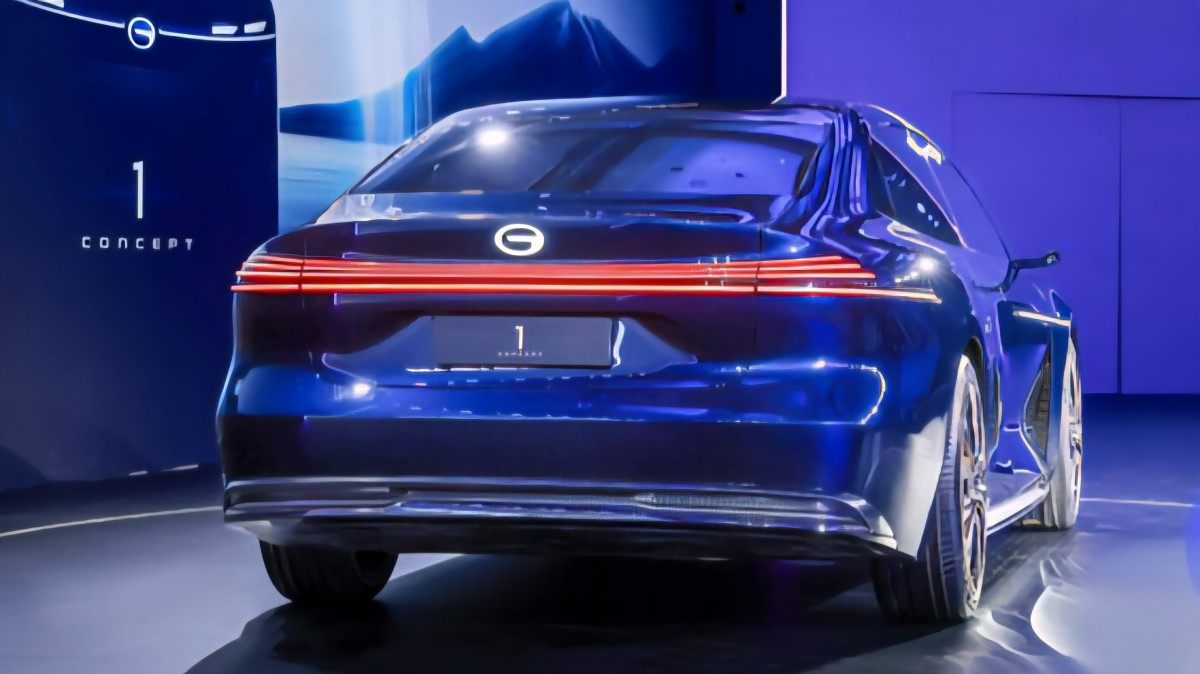GAC and Huawei unveil Qijing - a new electric car brand
Just when we thought the electric car market couldn't get any more crowded, two of China's industrial giants have decided to pull up a new chair to the table. Automaker GAC Group and technology behemoth Huawei have officially launched a new premium brand for electric vehicles named Qijing.
The new brand, Qijing, which translates to "Enlightened Realm," is a high-end offering. GAC has made it clear that this is not a side project. The company has established an entirely separate, independent company to run the Qijing brand and promises to pour its best resources into its success.
 GAC-Huawei Concept 1
GAC-Huawei Concept 1
For its part, Huawei is contributing more than just software; it is dispatching its top engineering talent to participate directly in the project. GAC announced that every Qijing vehicle will feature Huawei's most advanced intelligent driving and cockpit technology, known as Qiankun.
To understand why this partnership is different, you first need to understand Huawei's complicated relationship with the auto industry. The tech company has insisted for years that it does not want to build its own cars. Instead, it collaborates with automakers in three main ways.
 GAC-Huawei Concept 1
GAC-Huawei Concept 1
The simplest involves Huawei acting as a traditional supplier, selling components to car companies. A deeper level is the "Huawei Inside" (HI) model, where Huawei provides a full suite of its smart vehicle technology. The deepest and most well-known collaboration is the "Zhixuan" or "smart selection" model.
Under this partnership, Huawei gets heavily involved in vehicle definition, design, and even sales through its HIMA (Harmony Intelligent Mobility Alliance) business unit. This approach has produced brands like Aito with Seres Group, Luxeed with Chery, and Stelato with BAIC Group. In these cases, Huawei's influence is so strong that the vehicles are often seen as "Huawei cars" made by a partner.
 GAC-Huawei Concept 1
GAC-Huawei Concept 1
The Qijing brand is a fourth, entirely new approach. This collaboration is designed to be "automaker-led with Huawei's deep involvement." This subtle but important distinction suggests GAC will have greater control and autonomy over the brand and its products than Huawei's other partners.
It addresses a concern some automakers have about ceding too much of their brand identity and control to the tech giant. This new framework allows GAC to use Huawei's cutting-edge technology without being overshadowed by it.
 GAC-Huawei Concept 1
GAC-Huawei Concept 1
This isn't the first time GAC and Huawei have tried to work together. Back in May 2021, the pair announced plans to co-develop vehicles with Level 4 autonomous driving capabilities, with a goal of mass production by 2024. That ambitious initiative was later shelved.
The two companies didn't give up, though, and renewed their partnership in November 2024 with the goal of creating a new premium brand. This led to the formal establishment of a project company, codenamed "GH," in January of this year, funded with an initial registered capital of RMB 1.5 billion, or about $210 million.
 GAC-Huawei Concept 1
GAC-Huawei Concept 1
Although the Qijing brand has been officially unveiled, consumers will have to wait a little longer to see the first product. According to inside sources, the first model from the GH project is not expected to launch until 2026.
For both GAC and Huawei, this new brand is a high-stakes test of a new collaborative model. As the world of electric cars becomes increasingly defined by software and intelligent systems, the Qijing partnership could provide a new blueprint for how traditional automakers and technology firms can successfully work together.
Reader comments
- Anonymous
- GTd
How does one pronounce this name? To me it comes out like the ring of a cash register; "ka-ching"??




Facebook
Twitter
Instagram
RSS
Settings
Log in I forgot my password Sign up